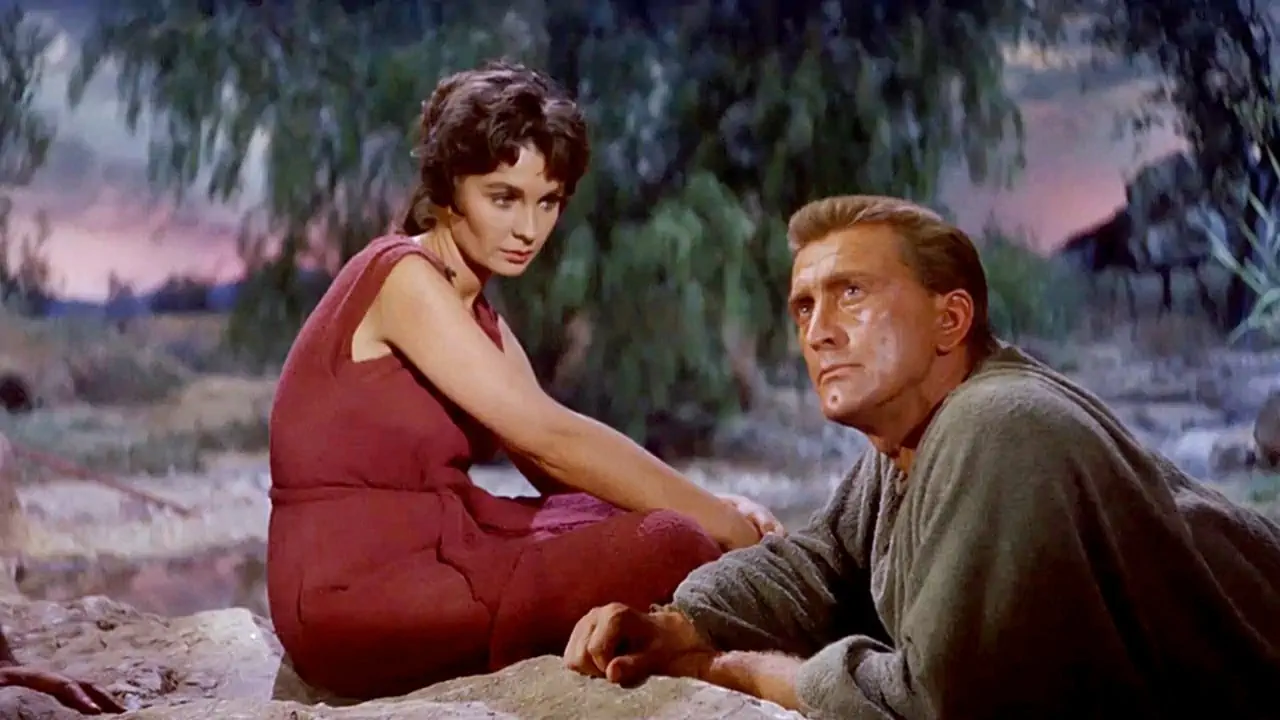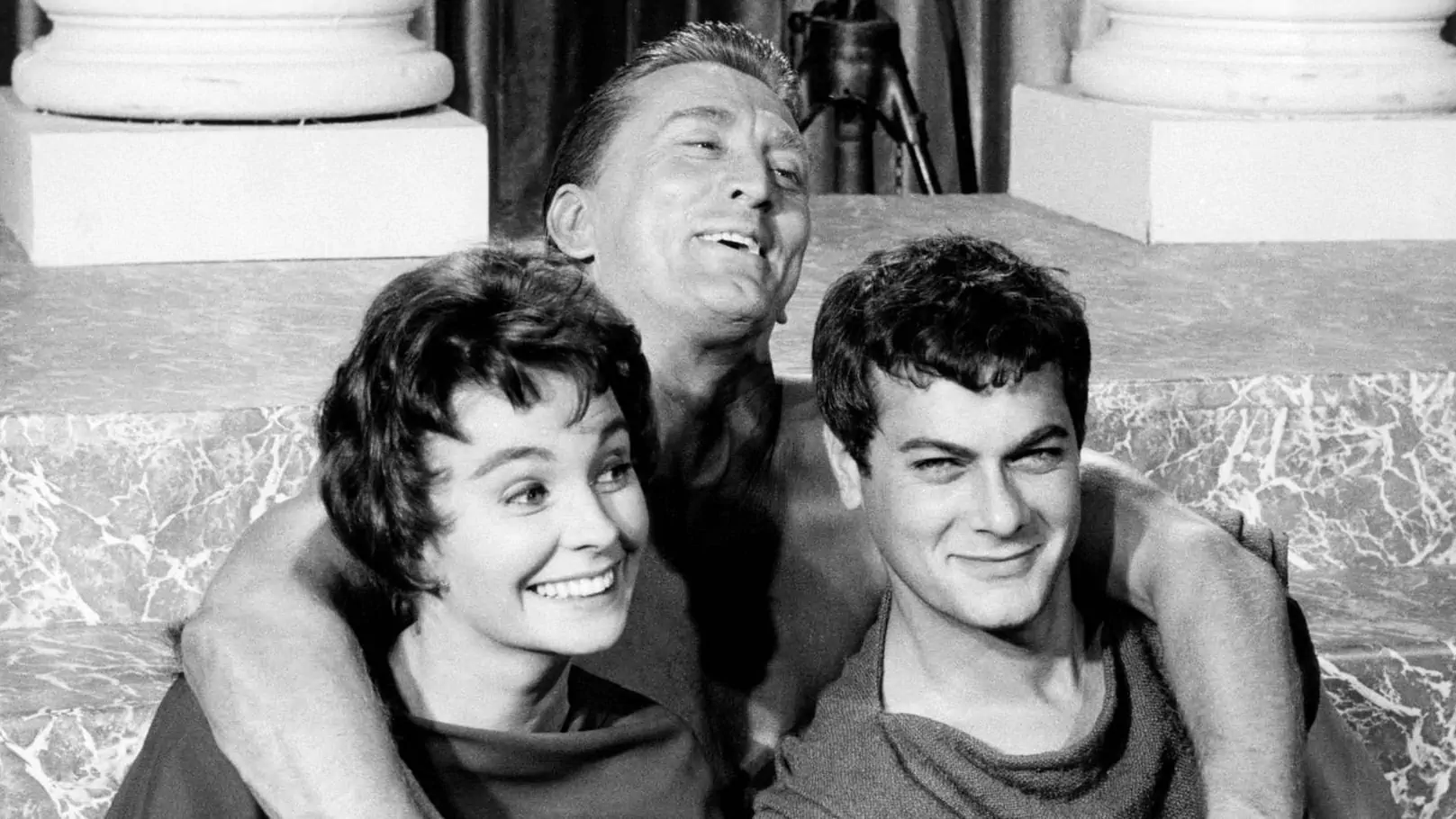Welcome to my review of the classic 1960 film, Spartacus! Starring Kirk Douglas, Laurence Olivier, and Jean Simmons, this epic historical drama is a cinematic masterpiece that has captivated audiences for decades. Directed by Anthony Mann and later taken over by Stanley Kubrick after Mann’s departure from the project, Spartacus tells the story of a gladiator who leads a slave rebellion against the mighty Roman Empire.
In this blog post, we’ll explore what makes this movie so timeless and delve into its historical accuracies and key themes. So grab some popcorn and get ready to join us on our journey through ancient Rome!
What is the movie Spartacus about?
Spartacus (1960) is an epic historical drama set during the Roman Republic era. The movie follows the story of Spartacus, a gladiator who leads a slave uprising against the oppressive Roman Empire.
The film begins with Spartacus being sold into slavery and forced to fight as a gladiator in Rome. He soon becomes friends with another gladiator named Draba and they both plan their escape from captivity. However, their attempt fails and Draba is killed while Spartacus is punished by being sent to fight in even bigger arenas.

Eventually, Spartacus becomes fed up with this cruel treatment and decides to lead his fellow slaves in revolt against their masters. They manage to take control of several cities along the way but ultimately face defeat at the hands of Crassus’ army.
Spartacus paints a vivid picture of ancient Rome’s brutal society where power struggles were commonplace and life was cheap for those on the bottom rungs of society. It explores themes such as freedom, oppression, rebellion and destiny through its powerful storytelling techniques that have made it one of cinema’s most beloved classics today.
Who are the main characters in the movie?
Spartacus is a movie that boasts an impressive cast of actors who portrayed the main characters. Kirk Douglas played the titular character, Spartacus, a Thracian gladiator who leads a slave rebellion against the Roman Empire. His portrayal of Spartacus was both commanding and emotional, making viewers empathize with his struggles.
Laurence Olivier played Marcus Licinius Crassus, the richest man in Rome and one of its most powerful generals. He schemes to defeat Spartacus’ rebellion and maintain his hold on power while also harboring a secret desire for his servant Antoninus (played by Tony Curtis).
Jean Simmons plays Varinia, a slave woman who catches Spartacus’ eye early in the movie. She becomes an integral part of his journey as they fall in love and fight together for their freedom.
Watch Now Spartacus (1960) Trailer
Other notable characters include Peter Ustinov’s portrayal of Batiatus, owner of the gladiatorial school where Spartacus is trained; Charles Laughton’s performance as Gracchus, a senator who supports Spartacus’ cause but must navigate treacherous political waters to do so; and John Gavin’s turn as Julius Caesar himself.
Each actor brings their own unique flair to their respective roles, creating memorable performances that make this classic movie unforgettable.
What are the historical accuracies in the movie?
Spartacus is a classic Hollywood epic that has stood the test of time. The movie was released in 1960 and tells the story of a slave rebellion against the Roman Empire. While it is certainly an entertaining film, one may wonder how much of what we see on screen actually happened.
In terms of historical accuracy, Spartacus does have its fair share of inaccuracies. For instance, while there was indeed a slave revolt led by Spartacus in ancient Rome, historians suggest that certain aspects of the movie are not entirely accurate.
One such example is how slaves were depicted in the film. In reality, slaves were treated far worse than what we see onscreen – they were often subjected to brutal punishments and lived under deplorable conditions.
Furthermore, some critics argue that Spartacus makes Julius Caesar’s role seem more significant than it actually was. Historically speaking, Caesar did play a part in putting down the rebellion but he wasn’t as heavily involved as portrayed in the movie.
Despite these inaccuracies, Spartacus still manages to capture our attention with its thrilling storyline and impressive performances from actors like Kirk Douglas as Spartacus and Laurence Olivier as Crassus.
What are the key themes of the movie?
The movie Spartacus is rich with themes that explore the human condition, politics, morality and power dynamics. One of the key themes in this epic film is freedom. The protagonist, played by Kirk Douglas, fights for his own liberation from slavery but also becomes a symbol for a larger movement of oppressed people fighting against the powerful Roman empire.
Another theme present in Spartacus is loyalty. Throughout the story, we witness how bonds are formed between characters and how they are tested through adversity. This theme raises questions about what it means to be loyal and whether it should be directed towards individuals or ideals.
Spartacus also delves into issues surrounding leadership and authority as well as the corrupting influence of power on those who hold it. We see examples of good leadership embodied by various characters such as Oenomaus (Peter Ustinov) while Crassus (Laurence Olivier) represents an example of ruthless authoritarianism.
Love is another central theme explored throughout Spartacus; highlighting both its beauty and tragic consequences when not allowed to flourish freely. From Varinia (Jean Simmons), whom Spartacus loves deeply despite their differences in social status to Gracchus’ unrequited love for Varinia’s friend Aurelia (Nina Foch).
These themes come together to create a complex narrative that speaks to fundamental aspects of our shared humanity even thousands of years after its setting in ancient Rome.
Conclusion
To sum up, Spartacus (1960) is a must-watch movie for anyone who loves historical epics. The film’s incredible performances by Kirk Douglas, Laurence Olivier, and Jean Simmons make it an absolute classic. Anthony Mann and Stanley Kubrick have done an outstanding job in bringing the story to life on screen. Although there are some historical inaccuracies in the movie, they do not detract from its overall impact.
Spartacus’ themes of freedom, oppression, and power continue to resonate with audiences today. It inspires us to fight against injustice and tyranny while also reminding us that even in the darkest moments of history, there is always hope.
If you haven’t seen Spartacus yet or haven’t watched it in a long time, now is the perfect time to revisit this masterpiece of cinema. You will be transported back in time to ancient Rome and experience one of history’s most significant rebellions firsthand!

